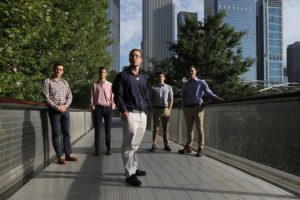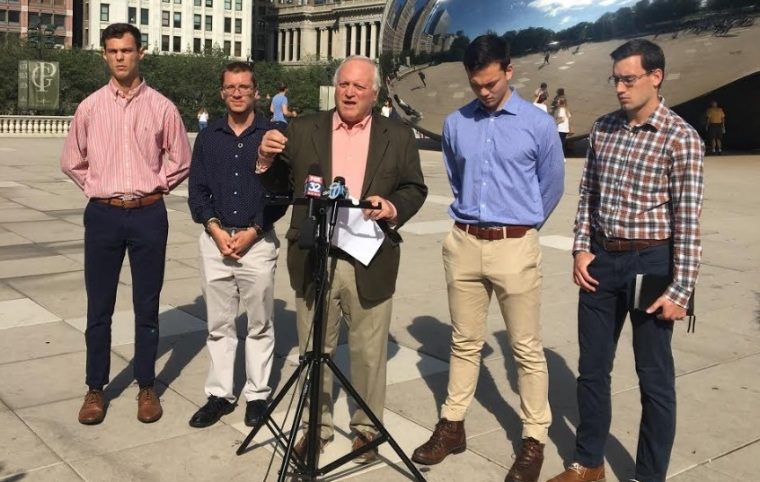Four student evangelists from Wheaton College in Illinois are suing the Chicago city government over a set of rules that they say are restricting their freedom of speech and religion at a popular park.
The students are members of the Chicago Evangelism Team sponsored by the Office of Christian Outreach at Wheaton College, an evangelical institution based in the Chicago suburbs.
The students contend they have faced opposition and at times have been prohibited by security from evangelizing at Millennium Park, a 24-acre downtown venue that hosts a range of activities including concerts, theatre, dance performances, art shows, and nature walks.
The Chicago Evangelism Team exists to “proclaim the Gospel in the city of Chicago to whomever we find there.” The group would commute to the city on Friday nights to share the Gospel with those willing to listen and engage with them.
“We desire to exercise our constitutional right to free speech through sharing the Gospel of Jesus Christ,” sophomore Matt Swart said in a statement. “For the sake of every citizen who desires to make use of the rights our forefathers bled for, we pray that the City of Chicago amends their unconstitutional code.”
The students are represented by the religious freedom law firm Mauck & Baker, LLC, which defends churches, religious institutions, businesses and individuals.

As of Wednesday, the law group was in the process of filing a motion in federal court for a preliminary or permanent injunction against a set of rules that govern behavior at Millenium Park.
“By its nature in history, public parks have always been completely open to speech activities,” associate attorney Sorin Leahu told The Christian Post.
According to the legal complaint, one restriction put in place by the city is a ban on “disruptive conduct.”
Specifically, the policy states that “[a]ny conduct, even if not specifically noted in these rules, is prohibited in the park if it interferes with or disrupts another visitor’s peaceful enjoyment of performance or amenity in the Park …”
When the group went to Millennium Park on December 7 of last year to engage in open-air evangelism and distribute Christian literature at the park, the complaint alleges that the students were informed by security staff that they could not hand out the literature or preach.
The students contested that they had the legal right to preach from a public sidewalk. The security guard didn’t argue with them but told them that he was just doing his job.
The students eventually asked to speak with a park supervisor. According to the lawsuit, two supervisors told the students they were “soliciting” the public to subscribe to their beliefs.
The supervisors argued, according to the lawsuit, that their activities were in violation of a Chicago ordinance prohibiting “solicitation” on the park sidewalk between Randolph Street and Roosevelt Street.
A week later, the students returned to the park to evangelize but were again stopped by security staff.
https://www.documentcloud.org/documents/6420630-Read-the-complaint-against-the-city-filed-by.html#document/p1
Over the course of the weeks that followed the students continued to try to evangelize at the park but “continued to face hostility and opposition from Park employees frustrating their ability to preach or distribute free religious literature.”
“Park employees, for example, prohibited the Students’ activities near ‘the Bean’ [tourist attraction] directing them to other parts of the Park, only later to prohibit them from those parts of the Park as well,” the complaint reads.
“On at least one occasion, a Park employee informed the Students that they could not discuss religion in the Park and ordered the Students to leave the Park if they wanted to talk about religion.”
The lawsuit claims that the pattern continued until about April 5, 2019, when one of the students was approached by Christopher B. Deans, a recreational operations manager. Deans provided the student with a set of newly enacted rules.
Among the rules was a requirement that individual speakers must receive approval from two city departments before they can speak at the park.
After a letter from the students’ legal counsel objecting to the licensing requirement, the city amended the rules on Aug. 26 to get rid of the licensing requirement. But the new rules kept intact a ban on activities across most of the park.
“The newly revised rules still contain unconstitutional provisions which unduly restrict speech within a traditional public forum,” the lawsuit reads.

